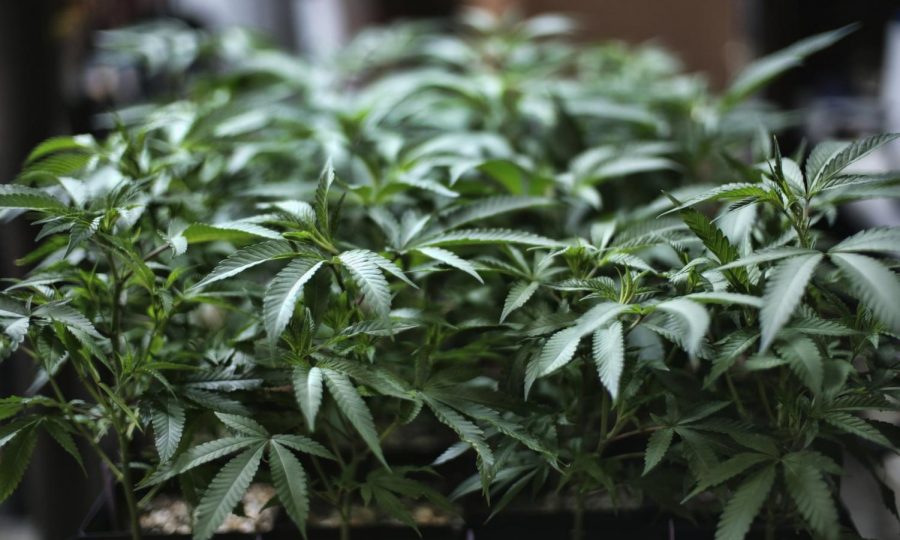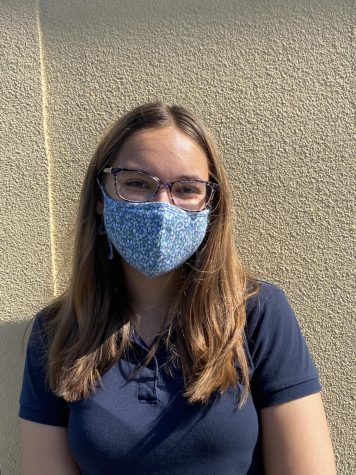Are Marijuana Convictions Bringing More Harm Than Good?
Los Angeles might dismiss 66,000 marijuana convictions through the Control, Regulate and Tax Adult Use of Marijuana Act.
February 21, 2020
On February 13th, Los Angeles County District Attorney Jackie Lacey and Code for America, a non-partisan, non-political organization that uses technology to help the government better serve constituents, announced that nearly 66,000 marijuana convictions are eligible to be dismissed under Proposition 64 , The Control, Regulate and Tax Adult Use of Marijuana Act, as part of their cutting-edge partnership. The county is working with Code for America to use algorithms to identify eligible cases within decades-old court documents which will help the movement relieve as many people as possible.
This is a stride forward to an America free of racial prejudice, noting the racial bias that hides behind the mask of marijuana convictions. In a report released by ACLU, American Civil Liberties Union, “Marijuana use is roughly equal among blacks and whites, yet blacks are 3.73 times as likely to be arrested for marijuana possession.” This is due to implicit bias in law enforcement, which is “inherently unintentional yet more pervasive” according to the New York Times.
Implicit bias can be deadly, in instances where black people are killed by cops for holding a comb or cellphone, which the police inferred was a gun due to the aggressive/dangerous stereotype police hold of the black community. Implicit bias can also result in innocent black people going to jail for crimes they haven’t committed, where a black people are “seven times more likely to be wrongfully convicted of murder and three times more likely to be wrongly convicted of sexual assault as compared to white people”, says the Innocence Project. The Innocence Project works to exonerate those who are wrongly convicted through DNA testing as well as working toward reforming the criminal justice system to prevent future injustice.
The 66,000 possible dismissions marks the completion of the five-county Clear My Record pilot to clear marijuana-related convictions eligible for relief under Proposition 64. The other counties in the pilot include San Francisco, Sacramento, San Joaquin and Contra Costa. “In total, these five pilots will help reduce or dismiss more than 85,000 Proposition 64 eligible convictions” says a statement.
Jackie Lacey, the LA district attorney, said in a statement that “The dismissal of tens of thousands of old cannabis-related convictions in Los Angeles county will bring much-needed relief to communities of color that disproportionately suffered the unjust consequences of our nation’s drug laws.”
Implicit bias deeply influences marijuana convictions, making the convictions extremely unfair with the racial bias. According to ACLU, “In the United States, between 2001 and 2010, a black person was almost four times more likely to be arrested for marijuana possession than a white person was, despite approximately equal rates of use. In some states and counties, blacks are 8, 10, or even 15 times more likely to be arrested.”
Relieving people of marijuana convictions, along with future convictions, has the possibility to also save money, where “the aggressive enforcement of marijuana possession laws needlessly ensnares hundreds of thousands of people into the criminal justice system and wastes billions of taxpayers’ dollars. Not to mention, the War on Marijuana has “has failed to reduce marijuana use and availability and diverted resources that could be better invested in our communities,” despite being a major priority for police departments nationwide.
According to American Progress, an independent nonpartisan policy institute that is dedicated to improving the lives of all Americans, “The United States has nearly 25 percent of the world’s incarcerated population despite comprising less than 5 percent of the world’s total population”, which is because of President Richard Nixon, who in the 1970’s first declared a war on drugs which lead to explosive incarceration rates. “Since then, the nation’s incarcerated population has increased sevenfold—from 300,000 people to 2.2 million people today—and 1 out of 5,” which “comes years after the state voted to legalize the drug.”
The possible dismissal of marijuana convictions in Los Angeles is a step forward in the right direction, where the democratic state can help lead America in the fight against the faulty reality of marijuana convictions, which is the racial bias aspects that lay refuge in the convictions as well as the waste of money.


